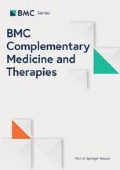Purpose
We conducted a one-year prospective cohort study to determine the promise and feasibility of a randomized clinical trial of adjunctive naturopathic care (ANC) for type 2 diabetes (T2D).
Methods
40 patients from Group Health Cooperative (GHC), a large integrated healthcare system in Washington State, with existing T2D and hemoglobin A1c values between 7.5-9.5%, were recruited to receive up to eight free visits of ANC over one year in addition to their usual care. Changes from baseline in self-care, self-efficacy and mood based on validated instrument scores were compared within the intervention group after 6- and 12- months. Clinical risk factors were also compared within group, and to a control group generated using electronic medical records (n=329), at the end of one-year.
Results
Significant improvements were measured in composite scores of the Summary of Diabetes Self-Care Activities (SDSCA) instrument for diet (+20% mean score, p=0.001), exercise (+28% mean score, p=0.02) and glucose testing (+45% mean score, p=0.001). Significant changes were also measured in depression scores measured by PHQ-8 (-33% mean score, p=0.001) and improved self-efficacy measured by the Self-Efficacy Scale (+25% mean score, p=0.0001). Many of the observed changes in self-care corresponded to the period of more intensive ANC utilization, i.e. the first six months, however improvements in glucose testing, self-efficacy and improved mood scores persisted at 1-year (+24% mean score, p=0.002; +43% mean score, p=0.003; and -33% mean score, p=0.005 respectively). Changes in clinical risk factors were small during the period of ANC, though hemoglobin A1c (HbA1c) improved significantly within group (-0.90%, p=0.02) and compared to electronic controls (-0.51%, p=0.07) at 6-months.
Conclusion
Patients with inadequately controlled T2D improved in their self-care behaviors, self-efficacy, mood and clinical risk during the period of ANC. Clinical trials are feasible and warranted.
Author information
Authors and Affiliations
Rights and permissions
This article is published under license to BioMed Central Ltd. This is an Open Access article distributed under the terms of the Creative Commons Attribution License (http://creativecommons.org/licenses/by/2.0), which permits unrestricted use, distribution, and reproduction in any medium, provided the original work is properly cited.
About this article
Cite this article
Bradley, R., Sherman, K., Catz, S. et al. P02.100. Adjunctive naturopathic care in type 2 diabetes: patient-reported and clinical outcomes. BMC Complement Altern Med 12 (Suppl 1), P156 (2012). https://doi.org/10.1186/1472-6882-12-S1-P156
Published:
DOI: https://doi.org/10.1186/1472-6882-12-S1-P156

